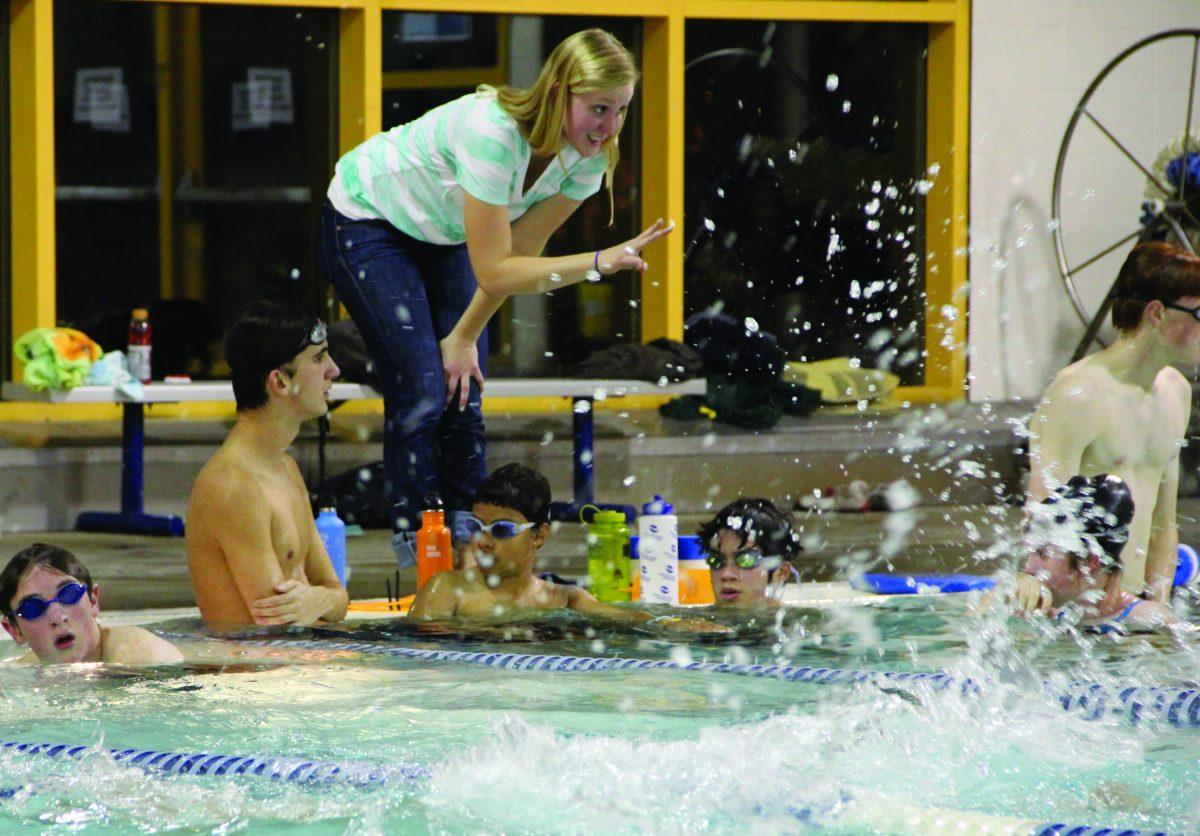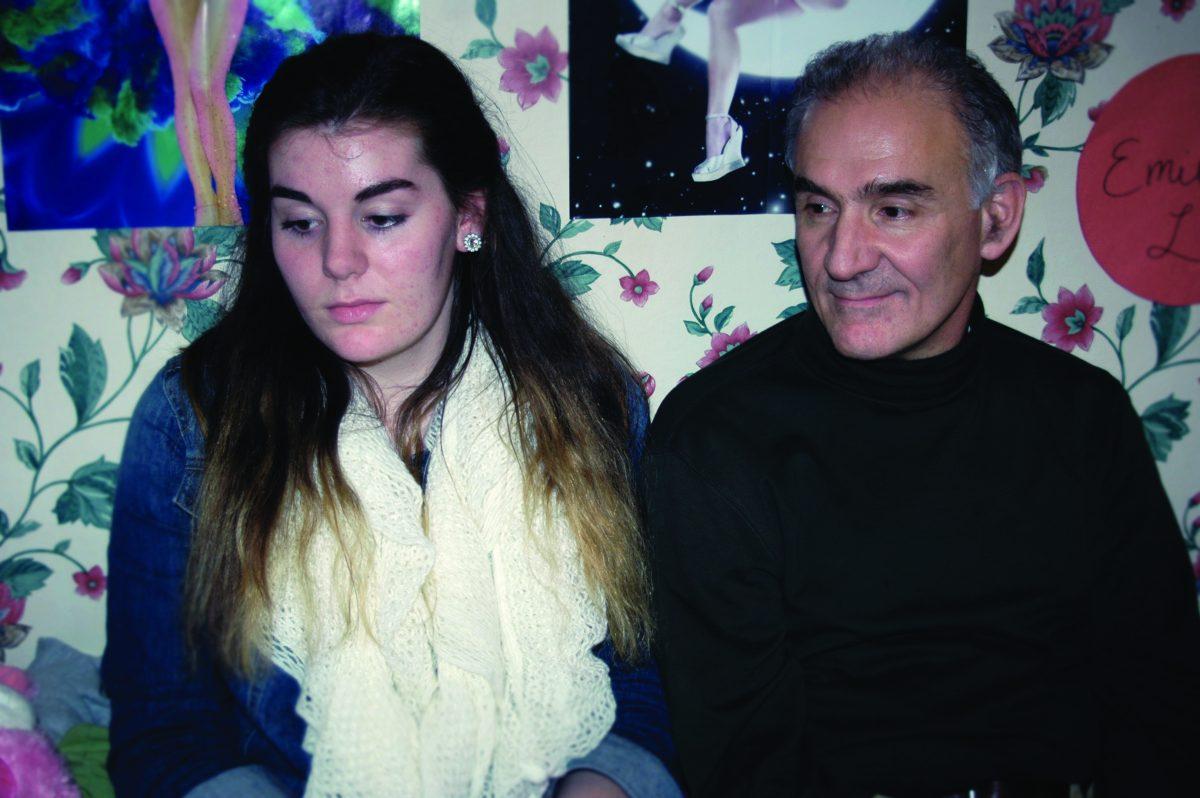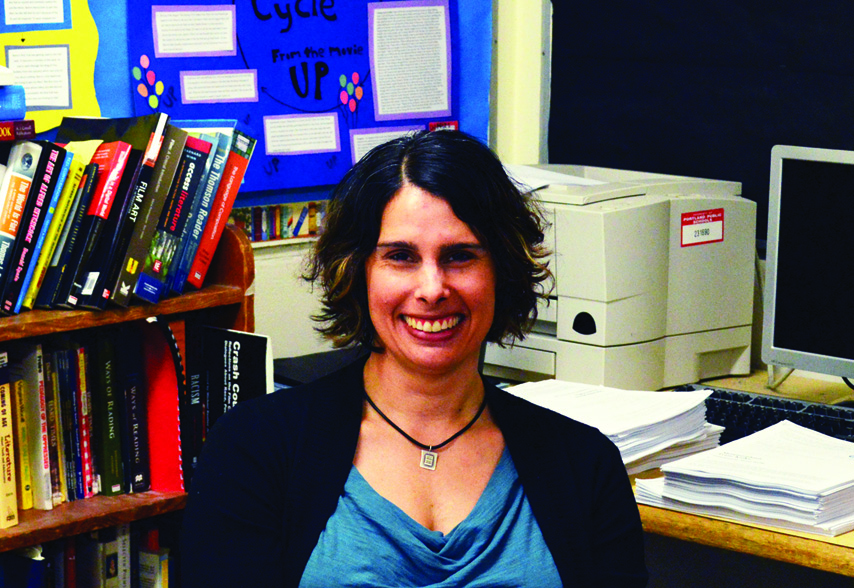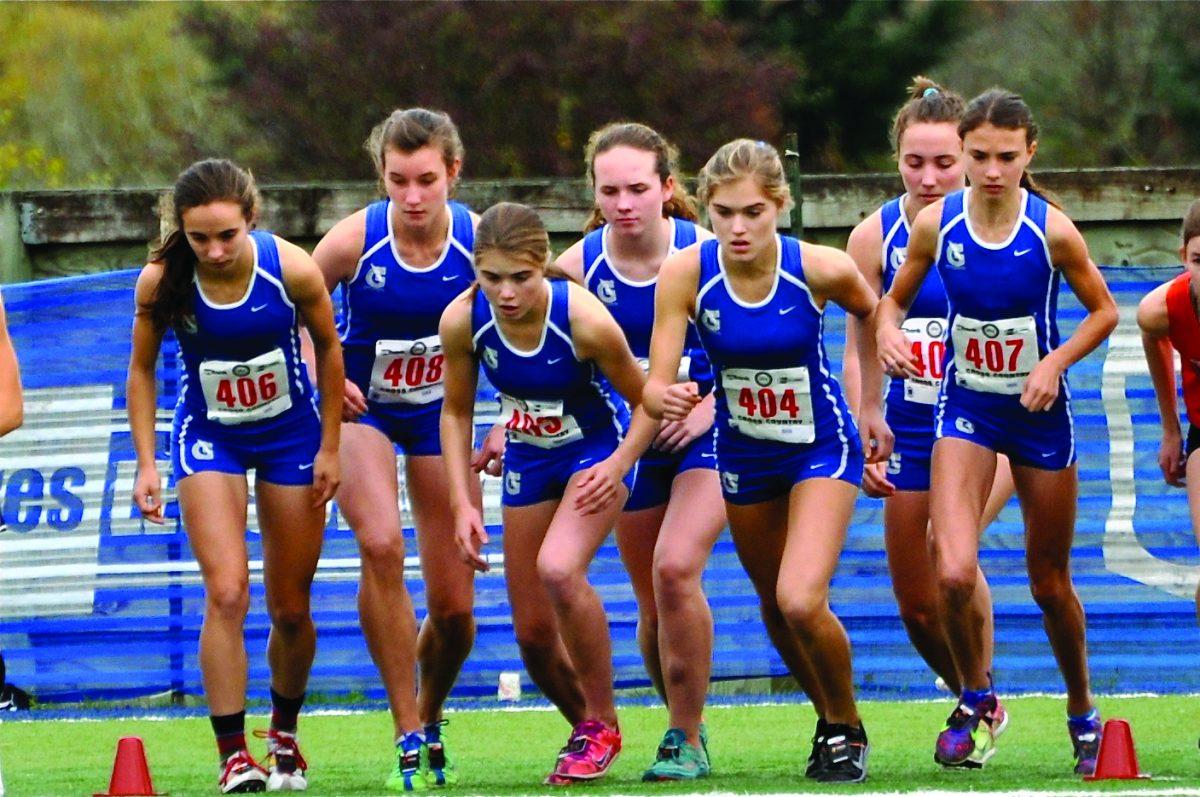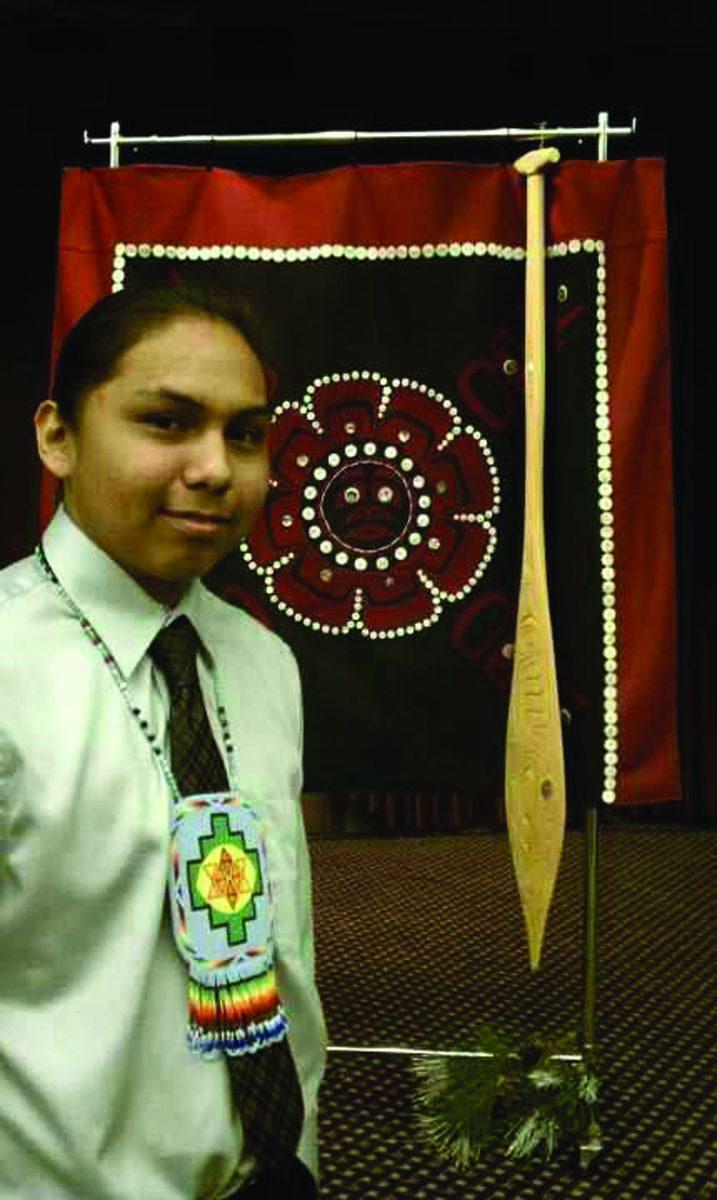Stacey McCrary calls out to a beginner swimmer straggling to complete his warm-up laps at a Grant High School swim team practice.
“Keep going, you can do it!” she yells, standing at the edge of the Dishman Community Center pool.
A few dozen teenagers on the team are divided into several lanes as they warm up under McCrary’s intent gaze. When her eyes focus watchfully on the far lane, the swimmers seem to move even faster through the water, aware of her attention.
McCrary graduated from Grant six years ago and has returned as the school’s swim coach. She replaces Laura Tyrrell.
“This isn’t necessarily what I saw myself doing when I graduated,” the 24-year-old McCrary says. “I’ve done so many other things in those six years that it feels like I’ve been away for a lot longer.”
The members of the team don’t seem to notice. “She seems to really be taking charge,” says Grant junior Lia Robichaud. “We’re in good hands.”
Born in 1988 and raised in Northeast Portland, Stacey McCrary began swimming lessons at the Grant pool when she was five. Initially, the classes were just for water safety, and once McCrary’s younger sister, Melissa, began swim lessons as well, Stacey McCrary continued to take instructions for her parents’ convenience. She also tried diving – anything to be in the pool. “I was always in the water,” McCrary remembers.
She played basketball, soccer and gymnastics, but one by one her interest in these sports faded away. Swimming became her passion.
She began to swim competitively when she was nine, joining a Grant summer league team through Portland Parks and Recreation. “It was never about winning,” she says. Instead, it was about swimming as fast as you could for the sake of swimming fast.
At Beaumont Middle School, McCrary discovered a curiosity for science. She was intrigued by plant and cellular biology. Her dad worked as a programmer with a machine shop and there were always microscopes around the McCrary house. She remembers playing with them when she was younger, looking at things under the lens just for fun. “That’s what started it,” McCrary says.
Eager to improve her swimming, in seventh grade McCrary joined the Portland Aquatic Club team, practicing and competing year round. “I was sick of only swimming in the summer.”
McCrary remembers the best thing about club swimming, “It’s the friends I made,” she recalls. “I’ve always thought of my club team as family.”
She remembers when the team would travel for competitions and club members would get excited if they had connecting rooms. “We were all really connected through swimming,” she says. Her swimming friends came from all over the city and she enjoyed experiencing that diversity.
During eighth grade, McCrary swam once a week with a senior club team. She says it was to challenge her to swim even faster. That summer, she skipped the usual senior prep team and joined the senior club team at 14.
As a freshman in high school, McCrary joined the Grant swim team but practiced mostly with her more competitive club. She wanted to be involved with her school.
Because she had been swimming competitively for years, McCrary had much more racing experience than most Grant swimmers. However, she was a freshman and the coach at the time had her swimming junior varsity. That meant she was blowing her opponents out of the water.
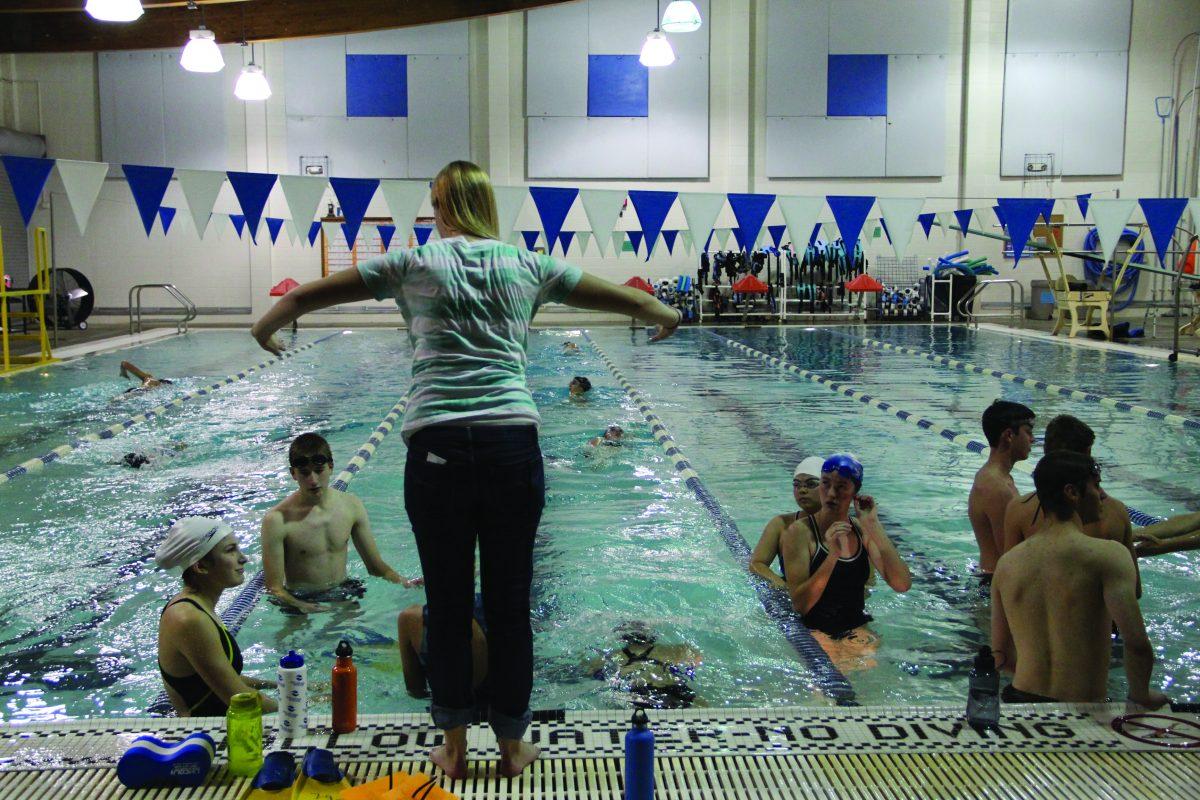 Someone pointed out that a person with McCrary’s talent shouldn’t be confined to junior varsity just because of her age. After all, swimming is based on the fastest times. She swam the rest of the season on varsity where she thrived.
Someone pointed out that a person with McCrary’s talent shouldn’t be confined to junior varsity just because of her age. After all, swimming is based on the fastest times. She swam the rest of the season on varsity where she thrived.
In 2003, Tyrrell became the new head coach at Grant. She had plenty of experience in coaching high school and college swimming, and she had McCrary swimming varsity for the rest of her high school career.
McCrary doesn’t remember having the time to do much besides swim. Swimming “is a black hole,” she explains. Even her job was related to swimming. When she was 16, McCrary began lifeguarding and teaching swim lessons, jobs she held every summer through her sophomore year in college.
Her parents recall taking her to meets all over Oregon, Washington and Arizona. “She swam six days a week at that level and never complained about the intensity of training while balancing school and sports, choosing not to miss practice even if she had a big project for school,” says her mom, Sharon, an educational assistant at Alameda Elementary School.
After graduating from Grant in 2006, McCrary attended Syracuse University. She swam on the Division I team before deciding not to be a “full time athlete and part time student.”
The turning point came when McCrary realized she wouldn’t be able to keep up with her rigorous pre-medicine coursework with all the time she was spending at swim practice. “I was in the pool more than I was in class,” she says. “Traditionally when I was stressed out, I would swim. But when the swimming was causing my stress that circle didn’t work.”
She remembers sitting on the floor in her dorm room and realizing that there was more to life than daily doubles and Saturday practices. Swimming had defined her throughout high school, but now she wanted a different experience. “I wanted to find out who I was away from the pool,” she says now. “For the first time in my life, I chose sleep and friends and staying out too late.”
McCrary joined a sorority and played rugby. She focused on her studies, discovered a fascination for medicine and worked in an emergency room. She thought about sports medicine and physical therapy school as possible careers.
Brian Baxter, the director of Portland’s Sports Psychology Institute Northwest, says the effects of full-time sports vary. “For some people, it’s beneficial to do other things,” he says. “For some people it’s beneficial to focus on one thing.”
It’s important to gain perspective away from sports and have a good support system outside of your sports team. “Balance is needed,” Baxter explains.
McCrary recalls feeling relieved after she told her coaches she was done. Swimming remained a part of her life, though. Whenever she was stressed out from an essay or feeling overwhelmed, McCrary would go swimming because it helped lower her stress level. In addition, every summer she would return home and help her old coach Tyrrell with coaching recreational swimmers from ages five to 14 at the Irvington Club.
McCrary graduated Syracuse in the spring of 2010 with a degree in biology and a minor in pre-medicine. Moving back to Portland to live at home, she began searching for what she wants to do with her life. She’s been looking at cancer biology and immunobiology master’s and PhD programs, as well as exploring the possibility of physical therapy school.
Tyrrell encouraged McCrary to become the Grant swim team assistant coach beginning in the winter of 2010. “My first thought was: ‘There’s no way,’” recalls McCrary. Though she had coaching experience from the recreational team at Irvington, she believed “coaching high school students is different.” However, she decided to take her coaching to the next level and joined.
When Tyrrell stepped down after the 2011-12 season, McCrary once again chose to take on a higher role on the swim team. Tyrrell had been hinting that McCrary should apply as head coach earlier in the year. But McCrary didn’t seriously consider it until the position officially opened in September. She applied in early October and was interviewed by the athletic directors Diallo Lewis and Matt Kabza, along with vice principal Curtis Wilson.
McCrary’s connection to Grant as the previous assistant coach helped get her the position. “She knew the kids, she knew the program,” says Kabza. Her Grant alumna status was also considered a plus.
“Honestly, I didn’t think I would get it,” McCrary says now, remembering the shock she felt when she received the phone call. “What overtook me the most was the excitement for being able to still be involved with the Grant team.”
The switch from assistant coach to head coach has been fairly smooth, McCrary says. Knowing many returning Grant swimmers has helped make the transition easier.
“I almost didn’t believe it when I heard she was going to be our new head coach,” says Grant junior Kyle Boyer, who likes McCrary’s encouraging coaching style. “I think most of the people on the team really wanted her to be the coach.”
Boyer recalls how when she was assistant coach “everybody wanted Stacey to coach their lane because even though you were swimming the same workout, you felt better about it. You felt like you didn’t swim as far.”
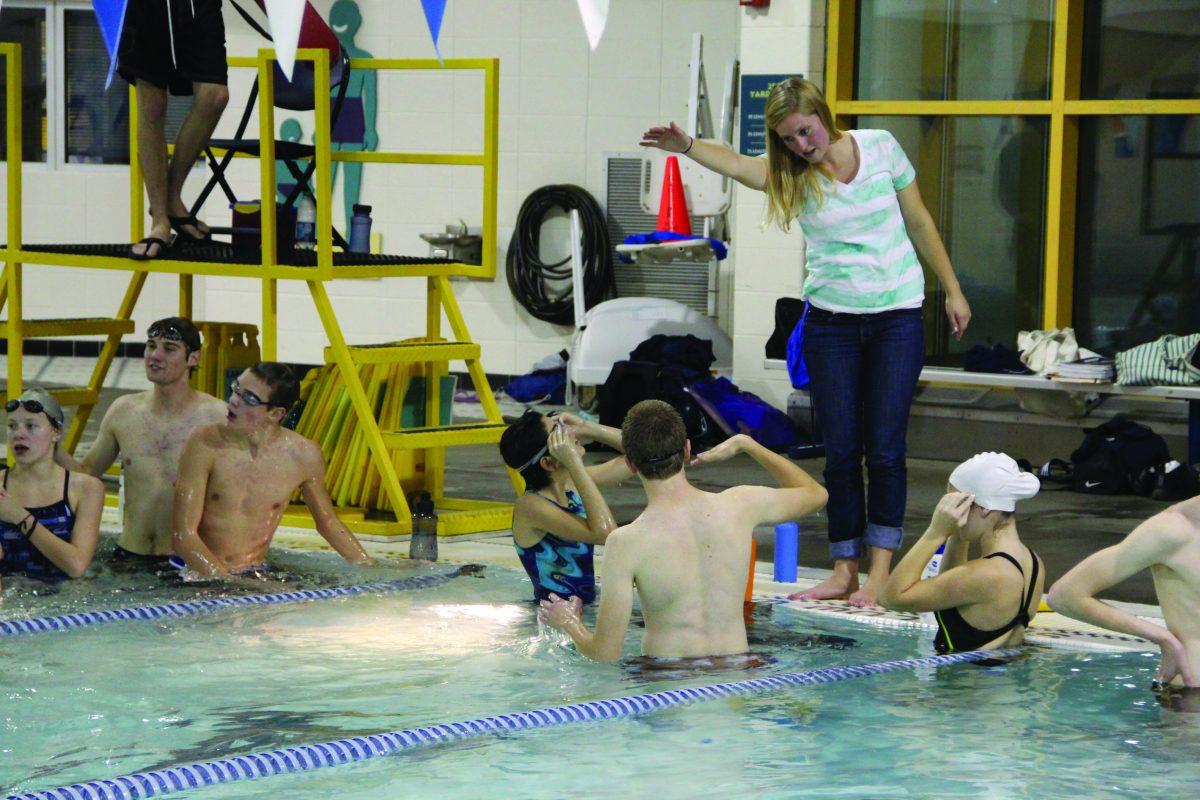 As coach, McCrary plans to direct longer, fitness-oriented workouts. She wants students to swim more yards at practices and focus harder on race training. Through balancing technique, fitness, and racing at practice, McCrary hopes to teach the swimmers to “be more ruthless in the pool.”
As coach, McCrary plans to direct longer, fitness-oriented workouts. She wants students to swim more yards at practices and focus harder on race training. Through balancing technique, fitness, and racing at practice, McCrary hopes to teach the swimmers to “be more ruthless in the pool.”
She especially wants to heighten the competitiveness of the girls’ team. “The girls have been traditionally less competitive than the boys,” she explains.
McCrary believes the girls’ team can improve. “I think we’re going to be a lot stronger this year,” she says.
Grant senior Maddy Kaczmarowski remembers seeing McCrary talk to nervous swimmers during competitions. “She’s been a good coach,” she says, adding that it helps that McCrary is closer in age to the swimmers than most coaches. “She was very serious about having us do the best that we can.”
Recalling her days as a club swimmer, McCrary wants there to be one team despite the differences between swimmers. She’s encouraging club swimmers to help out at Grant practices and work with each other to become better athletes.
At Syracuse, McCrary remembers being amazed at how sports teams would go as a group to support other teams at competitions. She believes this could be a community builder at Grant, and wants to see her swimmers follow this example. “I’d like to see them be leaders,” she says.
Besides coaching, McCrary is currently interning at the Providence Cancer Center for Clinical Trials. “It’s incredibly exciting,” she says, explaining that she’s trying to figure out the big picture of what she wants to do next.
If she chooses the physical therapy track, McCrary says she will want to open her own clinic. She’s interested in exercise science and wants to help people with preventative care, as well as recovery therapy. She is taking prerequisites for physical therapy school at Portland State University and studying for her personal trainer certificate exam, which would help bridge the gap between her degree and physical therapy.
McCrary thinks about a Grant swimmer who, as a freshman during McCrary’s first year as assistant coach, was not the best or fastest on the team. The swimmer made the varsity team last year because of his dedication and hard work. As a junior, he’s getting even better. McCrary thinks of him as a prime example of why she wants to coach.
“Seeing the improvement and growth is enough to keep you coming back,” she says. “I’m not interested in creating pro athletes; I want to create life-long swimmers.”



























